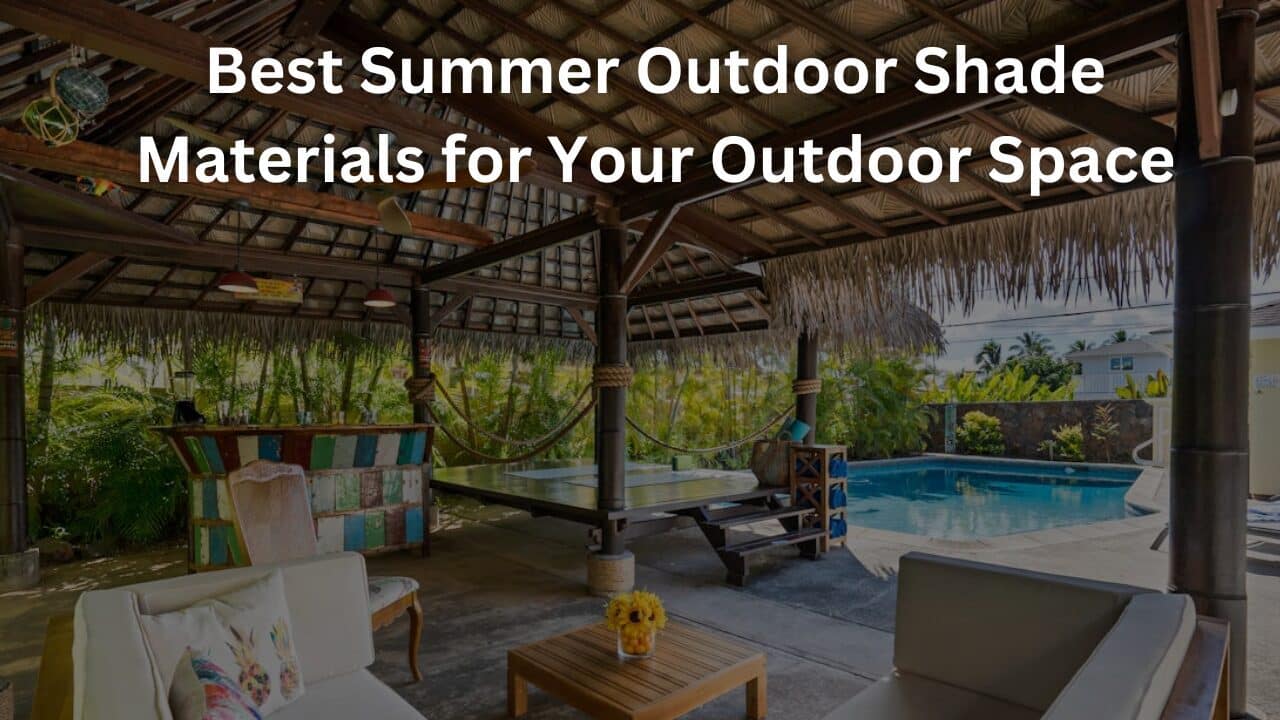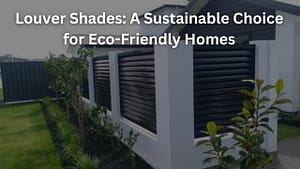As summer approaches and temperatures rise, creating a comfortable and shaded outdoor space becomes a priority. Outdoor shades not only provide relief from the sun’s intense rays but also protect your skin, reduce glare, and keep your outdoor areas cool. With numerous options available, selecting the right material for your outdoor shade can be daunting. This comprehensive guide will compare different outdoor shade materials based on durability and performance, helping you make an informed decision for your summer oasis.
Understanding the Importance of Outdoor Shade Materials
The material of your outdoor shade plays a critical role in its effectiveness and longevity. Key factors to consider when choosing shade materials include:
- Durability: How well does the material withstand weather elements such as UV rays, rain, wind, and temperature fluctuations?
- UV Protection: Does the material effectively block harmful UV rays?
- Aesthetics: How does the material contribute to the overall look and feel of your outdoor space?
- Maintenance: How easy is it to clean and maintain the material over time?
- Cost: Is the material affordable and does it offer good value for money?
Common Outdoor Shade Materials
Let’s dive into the most common materials used for outdoor shades, comparing their durability and performance.
Canvas
Canvas is a popular material for outdoor shades due to its versatility and durability. Made from cotton or polyester, canvas can be treated to become water-resistant and UV-resistant.
- Durability: Canvas is highly durable, especially when treated with protective coatings. It can withstand various weather conditions, including sun, rain, and wind.
- UV Protection: Treated canvas provides excellent UV protection, making it a great choice for sun protection.
- Aesthetics: Canvas is available in a wide range of colors and patterns, allowing you to customize the look of your outdoor space.
- Maintenance: Canvas requires regular cleaning to prevent mold and mildew, especially in humid climates. It is relatively easy to clean with mild soap and water.
- Cost: Canvas shades are moderately priced, offering a good balance between affordability and durability.
Polyester
Polyester is another widely used material for outdoor shades. It is known for its strength, flexibility, and resistance to stretching and shrinking.
- Durability: Polyester is highly durable and resistant to various weather conditions. It does not fade easily and retains its shape well.
- UV Protection: Polyester shades offer good UV protection, with many products specifically designed to block harmful rays.
- Aesthetics: Polyester can be dyed in numerous colors and patterns, providing ample design options.
- Maintenance: Polyester is easy to maintain and can be cleaned with soap and water. It is also resistant to mildew and mold.
- Cost: Polyester shades are generally affordable, making them a popular choice for budget-conscious homeowners.
Acrylic
Acrylic fabric is known for its durability and resistance to UV damage, making it a top choice for outdoor applications.
- Durability: Acrylic is extremely durable and resistant to fading, even under prolonged sun exposure. It also resists mildew and mold growth.
- UV Protection: Acrylic fabrics provide excellent UV protection, making them ideal for outdoor use.
- Aesthetics: Acrylic is available in a variety of colors and patterns, offering a stylish option for outdoor shades.
- Maintenance: Acrylic is low-maintenance and can be cleaned with soap and water. Its resistance to mildew makes it suitable for humid environments.
- Cost: Acrylic is typically more expensive than canvas and polyester, but its durability and performance can justify the higher price.
PVC (Polyvinyl Chloride)
PVC is a synthetic plastic material known for its durability and water resistance. It is commonly used in outdoor shade products like roller shades and shade sails.
- Durability: PVC is extremely durable, waterproof, and resistant to UV rays. It can withstand harsh weather conditions without deteriorating.
- UV Protection: PVC shades provide excellent UV protection, making them suitable for sunny areas.
- Aesthetics: PVC is available in various colors and translucency levels, allowing for customization. However, it may not offer the same aesthetic appeal as natural fabrics.
- Maintenance: PVC is low-maintenance and easy to clean with soap and water. Its waterproof nature makes it resistant to mold and mildew.
- Cost: PVC shades are moderately priced, offering a good combination of durability and affordability.
Bamboo
Bamboo is an eco-friendly and aesthetically pleasing material for outdoor shades. It adds a natural, tropical feel to outdoor spaces.
- Durability: Bamboo is durable and can withstand various weather conditions. However, it may require treatment to enhance its longevity and resistance to moisture.
- UV Protection: Bamboo provides decent UV protection, though it may not be as effective as synthetic materials.
- Aesthetics: Bamboo has a unique, natural look that enhances the ambiance of outdoor spaces.
- Maintenance: Bamboo requires regular maintenance to prevent mold and mildew, especially in damp climates. It can be cleaned with mild soap and water.
- Cost: Bamboo shades are generally affordable, making them a cost-effective option for eco-conscious homeowners.
Metal
Metal shades, typically made from aluminum or steel, are known for their strength and durability. They are often used in pergolas and other outdoor structures.
- Durability: Metal is extremely durable and can withstand harsh weather conditions, including heavy rain, wind, and UV exposure.
- UV Protection: Metal shades provide excellent UV protection, completely blocking sunlight.
- Aesthetics: Metal shades offer a modern, industrial look that can complement contemporary outdoor spaces.
- Maintenance: Metal shades are low-maintenance but may require occasional cleaning to prevent rust and corrosion.
- Cost: Metal shades can be expensive, but their durability and longevity can make them a worthwhile investment.
Choosing the Right Material for Your Needs
When selecting the right material for your outdoor shade, consider the following factors:
- Climate: Choose a material that can withstand the weather conditions in your area. For example, PVC or acrylic might be better for humid climates, while canvas or polyester could be ideal for drier regions.
- Usage: Consider how often you’ll use your outdoor space and how much maintenance you’re willing to perform. Low-maintenance materials like PVC or acrylic might be preferable for busy homeowners.
- Aesthetic Preferences: Your personal style and the existing decor of your outdoor space will influence your choice. Natural materials like bamboo or canvas can create a cozy, inviting atmosphere, while metal or acrylic can add a modern touch.
- Budget: Determine your budget and look for materials that offer the best value for your money. Remember that investing in a durable, high-quality material can save you money in the long run.
Conclusion
Selecting the right material for your outdoor shade is crucial for creating a comfortable, stylish, and functional outdoor space. By comparing the durability and performance of different materials like canvas, polyester, acrylic, PVC, bamboo, and metal, you can make an informed decision that suits your needs and budget. Whether you’re looking for a natural, eco-friendly option or a durable, low-maintenance solution, there’s an outdoor shade material that’s perfect for you. Embrace the summer with confidence, knowing that your outdoor space is protected and ready for relaxation and enjoyment.




